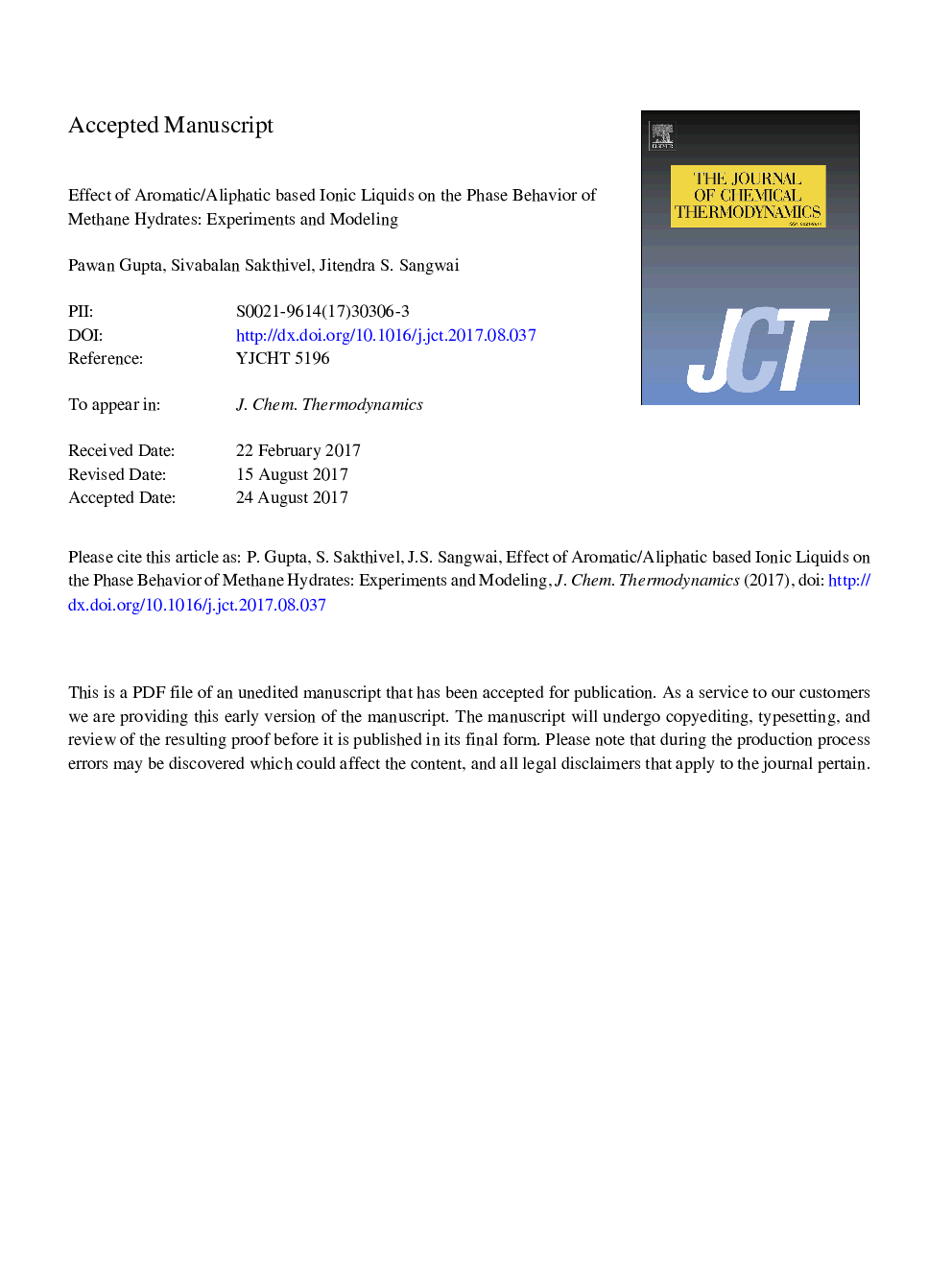| Article ID | Journal | Published Year | Pages | File Type |
|---|---|---|---|---|
| 6659885 | The Journal of Chemical Thermodynamics | 2018 | 45 Pages |
Abstract
In this study, eight ionic liquids (ILs) from the two varieties of ILs, namely, aromatic and aliphatic ILs, have been considered to carry out experimental studies for their effect on the phase behavior of methane hydrate. We have employed five aromatic based ILs with several cations, such as 1-butyl-3-methyl imidazolium, 1-hexyl-3-methyl imidazolium, 1-octyl-3-methyl imidazolium and various anions, such as [Cl]â, [Br]â, [HSO4]â, and three aliphatic based ILs with various cations, such as di-ethyl-ammonium, tri-propyl-ammonium, tri-butyl-ammonium and [HSO4]â anion. All the experiments were performed in the hydrate equilibrium pressure and temperature ranges of 3.86-7.66 MPa and 276.68-283.18 K, respectively. It has been observed that all the investigated ILs have shown inhibition effect on methane hydrate system. Aromatic ionic liquids have shown their dominance over aliphatic ionic liquids in terms of methane hydrate inhibition. ILs with similar class of cation with varying carbon chain length have not shown significant improvement in hydrate inhibition. However, the replacement of anion by [HSO4]â in imidazolium-based ILs improves methane hydrate inhibition. 1-butyl-3-methyl imidazolium sulphate ([BMIM]+[HSO4]â) found to be the best methane hydrate inhibitor among all investigated ILs. In addition, a phase behavior model incorporating a single tuning parameter has been proposed to predict the phase behavior of methane hydrate in the presence of various ionic liquids and salt solutions. The absolute average deviation in pressure (AARD-P, %) for proposed model with an experimental data generated in this work and for various data sets from the literature has been found to be within ±2.90% of the experimental values. Both cation and anion of the ionic liquids have shown to exhibit inhibition effect on the methane hydrate phase stability. The study indicates that the selection of ionic liquids with tunable cation and anion may provide an opportunity to design the best inhibitor for methane hydrate.
Related Topics
Physical Sciences and Engineering
Chemical Engineering
Chemical Engineering (General)
Authors
Pawan Gupta, Sivabalan Sakthivel, Jitendra S. Sangwai,
